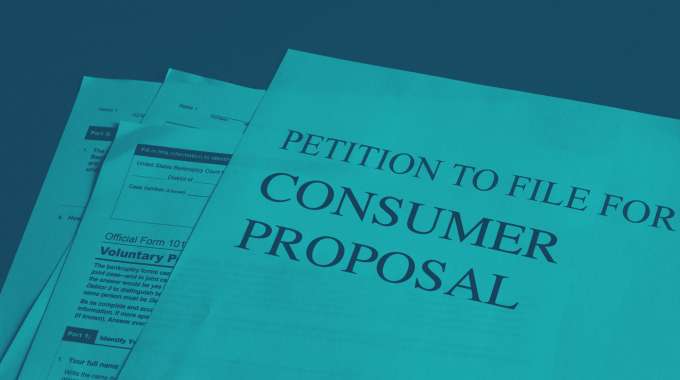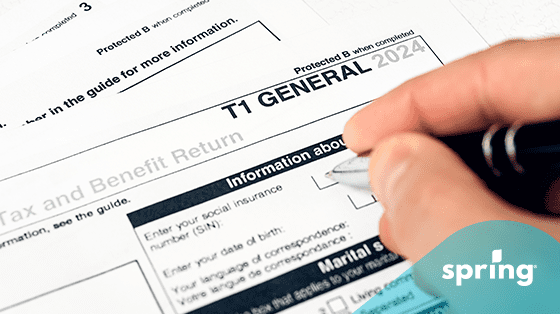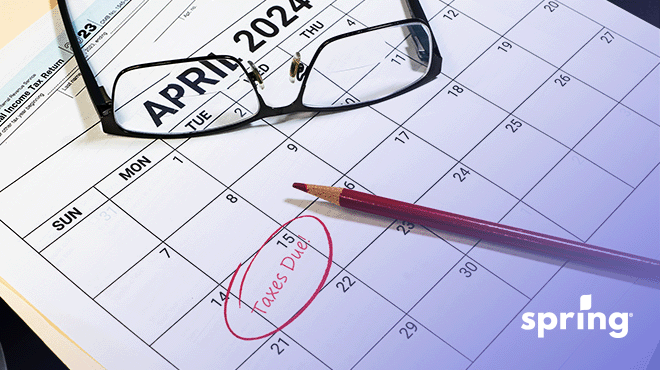With consumer debt levels rising at record rates across the country, it’s no surprise the number of Canadians filing for insolvency is higher than ever. According to the Office of the Superintendent of Bankruptcy (OSB), there were 137,178 insolvency filings in 2019 alone—and this was before any pandemic came along to wreak havoc on the economy. The bottom line: Canadians are deeper in debt than ever before, and for many Canadians that debt is unmanageable.
It’s not all bad news, however. There are a few ways to turn unmanageable debt into manageable debt. One option is declaring bankruptcy, but a more desirable option is to file a consumer proposal.
With a consumer proposal, you enter into an agreement with your creditors to either repay only part of what you owe, or all of what you owe but with more time to repay it. Creditors are often happy to enter into these agreements because they get back more money than if you were to file for bankruptcy.
Related articles
How Does a Consumer Proposal Impact my Credit Rating?
Of course, consumer proposals have their downside. When a bankruptcy trustee helps you file a consumer proposal with your creditors, a note is placed on your credit report, and you’ll receive an R7 or R9 credit rating. To put that in context, R1 is the best credit rating possible, while R9 is the worst.
Because of this impact to your credit rating, it can be extra challenging to get a loan or mortgage while your credit report has a consumer proposal note on it, but it’s not impossible. There are steps you can take to rebuild your credit faster and show creditors you’re taking steps to responsibly repay your debts.
Most importantly, a consumer proposal doesn’t impact your credit rating permanently. In fact, it only sits on your credit report for a finite amount of time.
How Long Does a Consumer Proposal Stay on Your Credit Report?
The magic number is three years. The two major credit reporting agencies in Canada—TransUnion and Equifax—will remove the consumer proposal note from your credit rating three years after the proposal debt has been repaid in full. So if it takes you two years to pay off your consumer proposal, your credit rating will be impacted for a total of five years. Therefore, the quicker you pay off your consumer proposal, the quicker you can get back to rebuilding your credit.
Once you’ve successfully paid your consumer proposal in full, you’ll receive a Certificate of Full Performance. To ensure your credit score is updated as soon as possible, you should send a copy of this certificate directly to TransUnion and Equifax. They’ll update your file and start the clock on your three-year wait.
Can I Get a Loan While in a Consumer Proposal?
Because of the impact a consumer proposal has on your credit rating, getting a loan while paying off a consumer proposal is extra challenging, though not impossible. The good news is that to some lenders, the fact you’ve committed to repaying your debt through a consumer proposal (as opposed to abandoning your debt through bankruptcy) is a sign of good faith.
When you apply for a loan while under a consumer proposal, lenders will need assurance you can make your payments. You’ll need to prove you have steady employment and a high enough income to afford your consumer proposal payments alongside the new loan amount you’re applying for. During the application process, the lender may contact your consumer proposal trustee to check that you’ve been making your payments on time.

How to Build Credit After a Consumer Proposal
The road to rebuilding credit after a consumer proposal can seem long and endless, but by following some simple good-credit practices you can get back to good financial standing in relatively short order.
Here are some tips to improve your credit during and after a consumer proposal.
1. Pay All of Your Bills on Time
This is the most important tip you absolutely need to follow, both during and after your consumer proposal. You need to pay every bill you have on time, including credit cards, utilities, cell phone bills, and so on. On-time payments are the single-biggest factor in the equation that determines your credit rating, so make sure you have a handle on the payment cycles and due dates for all of your debts and commitments.
2. Reduce Your Use of Credit
Going over your credit limit, making too many new credit applications in a short space of time, and carrying too much debt all negatively impact your credit rating. Establish a budget—during and after your consumer proposal—that doesn’t require you to overextend yourself financially by leaning on credit cards or credit accounts.
3. Focus on Products That Will help You Build Credit
As we stressed above, it’s important to reduce your reliance on credit and limit the amount of credit applications you make—but if you don’t have any loan products on file, it will be tough to build credit. After all, the best way to improve your credit score during and after a consumer proposal is to borrow and show good faith in making on-time payments. Just make sure you are selective in choosing products that are manageable and ultimately beneficial to your financial health.
Credit builder programs and secured credit cards are designed to help people build up credit. With both products, there’s no risk to the lender, so it’s much easier to get approved if your credit rating is poor. With a credit builder program, you make small payments on a fixed schedule, and every instalment gets reported to the credit bureaus.
With a secured credit card, you pay a deposit upfront and this deposit acts as your spending limit on the card. As long as you pay off the balance regularly, this responsible behaviour will reflect well on your credit report. Small but consistent credit card usage is key—don’t max it out. If you do, make sure that you clear the balance as soon as you can.
How to Pay Off a Consumer Proposal Early
Since a consumer proposal note will stay on your credit report for three years after you pay the amount off in full, it’s advantageous to try and pay off your proposal as quickly as possible.
This isn’t always easy, and it’s important to keep your priorities in order before you begin making plans to speed things up. First and foremost, don’t try and pay off the proposal faster to the detriment of your credit score in other ways. For instance, don’t start lagging on your other bills or debts in order to put more money toward your consumer proposal payments.
It’s important to strike a balance between practicing good-credit practices during your consumer proposal, and attempting to pay off that consumer proposal quickly. With that in mind, here are some tips to pay off your consumer proposal early.
1. Increase Your Payments
If your budget allows it, increasing your consumer proposal payments even a little bit can add up to a big difference over the long term. For example, if your currently paying $500 per month toward your consumer proposal, increasing that amount by just $50 results in an extra $600 paid off over the course of a year—essentially one extra monthly payment.
2. Increase the Frequency of Your Payments
Another simple way to pay off your proposal amount faster is to increase the frequency of your payments. By doing this, you’re chipping away at the total amount you owe faster, which means you’re paying less interest over the full period of time it takes you to pay off the consumer proposal amount.
3. Borrow to Pay Off your Consumer Proposal
In some rare cases, it can be beneficial to borrow a large amount in order to pay the consumer proposal off extremely quickly (or even instantly). For instance, if you own your own home, you might be able to take out a second mortgage with your home’s equity, and use this to pay off your consumer proposal in full.
Doing this goes against our advice to reduce your overall debts. But it accomplishes two things at once: First, it starts your three-year wait quickly. And second, making on-time payments on your second mortgage helps you rebuild your credit.
Spring Financial serves Canadians facing all types of credit situations with practical advice and credit-building solutions. We also offer quick-and-easy secured and unsecured instalment loans to help you take those first steps to a better financial future. Apply today to see how we can help!








